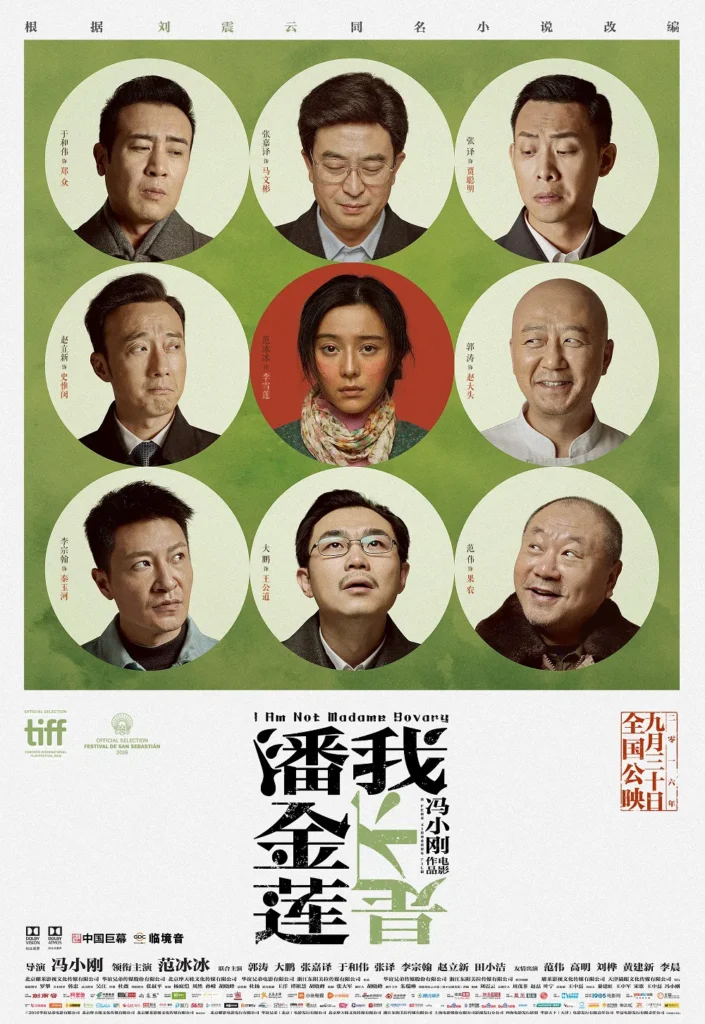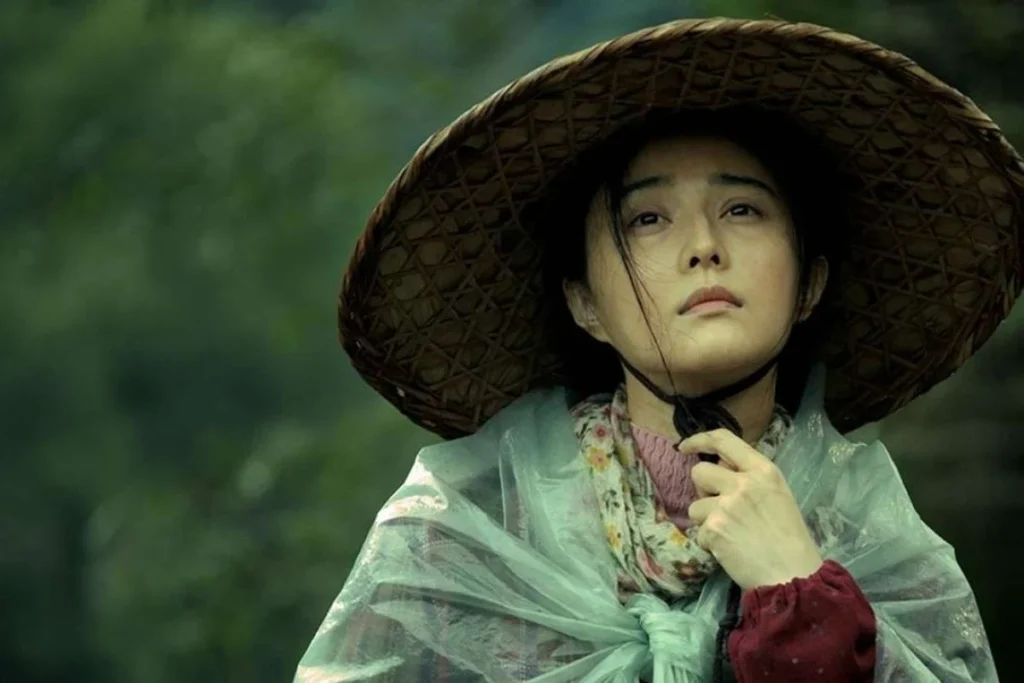Inspired by Liu Zhenyun’s novel ‘I Did Not Kill My Husband’ the film is a drama that focuses on the hidden details of Chinese social life and the legal loopholes within the system.
Story
The film’s main character, Li Xuelian, is a woman who has adapted to society and lives in an ordinary village in rural China. However, the betrayal she experiences in her marriage abruptly changes her life. She makes a deal with her ex-husband, Qin Yuhe, to fake a divorce. Their aim is to bypass the government’s strict housing policies and buy a second house.
The number of houses a family can own is usually limited in large cities. For example, a family can usually only buy one house. Buying a second house involves very high taxes or additional regulations. To increase their right to own a house, couples often try to bypass these regulations by pretending to divorce. This way, each gains the right to buy their house after the divorce. This is an illegal method to buy a second house, especially due to the high prices.
Li Xuelian and her husband Qin Yuhe plan a fake divorce to bypass this policy. According to their plan, they will divorce on paper but continue to live in the same house. After the divorce, Li Xuelian will be able to buy a new house because she will be considered an independent person in the eyes of the government. However, after the divorce, Qin Yuhe leaves Li Xuelian and marries another woman. This situation makes Xuelian feel cheated. Li thinks everyone in her circle knows that divorce is just a procedure on paper for buying a house. However, her ex-husband turned this situation to his advantage and kept quiet until the divorce proceedings were completed by not telling Li the truth. While Li naively expected to remarry, her ex-husband Qin rejected this, and Li found herself in an extremely vulnerable position in the society in which she lives.

Li’s main demand is to annul the divorce. In this respect, she requests the annulment of the divorce through a lawsuit. However, her own declaration is not enough to annul the divorce. There is a need for other strong evidence. Her ex-husband Qin claims that the divorce is real. In this respect, Li’s hand is weak. She wants to have the officer who signed the divorce proceedings heard as a witness. However, if the officer speaks in Li’s favor, he will have admitted to being a party to a fake divorce and be held responsible. Therefore, he does not testify in Li’s favor despite knowing the truth. As a result, Li has no evidence other than his own statement.
Whenever she goes to court, the legal system and local bureaucracy belittle the woman’s struggle and reject her demands. Xuelian, who is stubborn and does not give up on demanding her rights, finally decides to seek justice at the national level and aims to make her voice heard by the country’s leaders. She even reached the President of China. Considering the film’s release date, it would be right to say that another character is representing Xi Jinping. In the meeting, the President harshly criticizes the administrators responsible for Li’s state. Because a tiny problem has reached him and has not yet been resolved, the Chinese legal system needs to work better, and the administrators need to care about the people’s problems.
Xuelian’s complaints should be taken into consideration by the head of state. The solution to the problem is referred to the local administrators, who still need help to solve Xuelian’s demands. Because there is no evidence in the case, even though the head of state sent it. Xuelian tries to prove her rightness with various letters and the lawsuit she has filed yearly for years. However, what she does has become a routine behavior. The administrators, who initially tried to prevent Xuelian from going to Beijing, now that the head of state is also aware of it, are content with only observing her. In other words, the means of resorting to law are open, but results still need to be achieved. The administrators do not resort to resolving the problem with her ex-husband Qin. This may require that divorces made for the purchase of housing be taken more seriously. This also raises the criticism that this problem is implicitly accepted and ignored.

Li Xuelian is a brave woman who struggled to seek rights despite the patriarchal social structure in rural China at the time. Her environment is a place where male-dominated values and social prejudices prevail. As a divorced woman, she is ostracized by society, and the slanders thrown at her by her husband make the path of struggle even more difficult. Although Xuelian is an ordinary person, she challenges the society of the time with her determination and stubbornness in her pursuit of justice. Even during China’s rapid modernization, it was very difficult for women in rural areas to make their voices heard, and Xuelian took on this challenge with all her might.
The Story Behind the Movie’s Title
The original title of the movie is “Wo Bu Shi Pan Jinlian” (我不是潘金莲). This phrase refers to Pan Jinlian, a Chinese literary character associated with immorality and disloyalty. Pan Jinlian symbolizes moral corruption in the classic Chinese novel “The Story of the Golden Bottle” (Jin Ping Mei). Throughout the movie, Li Xuelian tries to prove that she is not like Pan Jinlian but an honest and upright woman.
The title, which translates to English as “I Am Not Madame Bovary,” makes it easier for Western audiences to understand the theme of moral corruption by connecting it to Gustave Flaubert’s famous novel Madame Bovary. In China, this title represents Xuelian’s rejection of the prejudices and unfair accusations that society places on her.

Artistic Aspect
The movie offers a visually unusual experience. Director Feng Xiaogang often tells the story in a circular frame. This technique symbolizes the narrowness of Xuelian’s world and the society’s constant judgment cycle of her. The square frames used in the film’s final sections reflect the main character’s changing perspective and transformation on the path of struggle. These bold visual choices give the viewer an aesthetic and symbolic experience. Throughout the film, Xuelian questions society, the media, and even the government’s perspective on justice. However, in the end, she realizes that all this effort is just about personal revenge.





